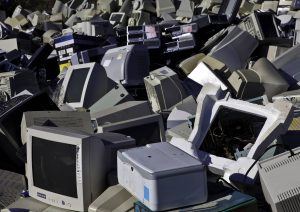How to Safely Dispose of Computer Equipment
Safely Dispose of Computer Equipment
Computers are indispensable tools for most people who work in modern society. They allow us to communicate, shop and play games, as well as perform a variety of other tasks. But when computers reach the end of their useful life, they must be disposed of properly to prevent environmental harm and to protect personal information from falling into the wrong hands.
When it comes to computers, there are several options for safe disposal, including donation and recycling. Many hardware suppliers have programs in place to take back old equipment and retailers have drop-off locations for electronic waste. But it’s important to research the companies that you’re working with before putting your trust in them to dispose of your unwanted hardware.
Before disposing of a computer, back up any data that you may have stored on it. Then, either wipe the drive using software or physically destroy it with a drill or hammer so that no data can be recovered by another party. This is the only way to ensure that your private information won’t be exposed to cyber criminals.
Most computers contain heavy metals like lead, mercury and cadmium that can be toxic to the environment. They also use toxic plastics that can break down into microplastic particles that are harmful to plants, animals and people who ingest them. Therefore, it’s essential that any e-waste is handled properly to avoid environmental damage and to prevent the illegal export of hazardous materials.
If you’re planning to donate your old computer, make sure that any information stored on the hard drive is completely wiped. This will prevent a malicious person from using your personal information to commit fraud or identity theft. It’s also a good idea to contact the manufacturer and ask if they have any programs in place for end-of-life equipment.

How to Safely Dispose of Computer Equipment
Some manufacturers don’t handle their e-waste ethically, sending it to landfills in developing countries. This is a huge environmental hazard, and it can even pose a health risk for local residents.
Lastly, you can also recycle your computers and other electronics at your local hazardous waste facility. These facilities are usually operated at the city or county level and will disassemble your equipment for proper disposal.
Donating or recycling your computer is an excellent option for environmentally conscious individuals. It keeps heavy metals and toxins out of landfills and garbage dumps, reduces pollution and conserves valuable resources. However, it’s important to research the companies that are handling your e-waste and to consult with a professional about the regulatory standards in your area.
Safely disposing of computer equipment disposal is crucial for both environmental sustainability and data security. Computers, laptops, and other electronic devices contain hazardous materials like lead, mercury, and cadmium, which can harm the environment if not disposed of properly. Additionally, failing to erase personal or sensitive data from devices before disposal can lead to privacy breaches or identity theft. Here’s a guide on how to safely dispose of computer equipment: